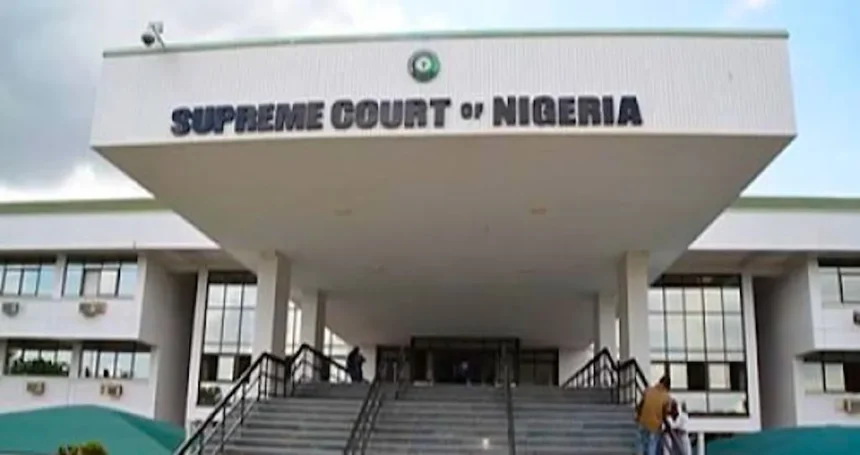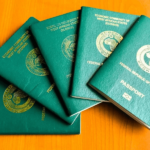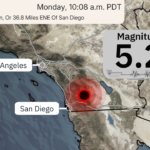The battleline has been drawn and all appears set for a legal showdown to begin between the Federal Government of Nigeria and the Governors elected on the platform of the People’s Democratic Party (PDP) over the declaration of emergency rule in Rivers State by President Bola Tinubu.
Ahead of this mouthwatering face-off at the Nigeria’s apex court, Attorney General of the Federation and Minister of Justice, Lateef Fagbemi (SAN), has moved to begin drafting the response of the Federal Government to a lawsuit initiated by the PDP governors to challenge Rivers emergency rule and the suspension of one of their own, Governor Siminalayi Fubara of Rivers.
It was gathered that Fagbemi had instructed the Ministry of Justice to draft the response of the government to throw out the suit of the PDP Governors.
On the part of the PDP Governors, it was gathered that they have enlisted the expertise of seven Senior Advocates of Nigeria (SAN), along with six additional attorneys, to challenge the Federal Government at the Supreme Court.
According to reports, the SANs hired by the governors include Bolaji Ayorinde, Eyitayo Jegede, Kamaldeen Ajibade, J.A Mumuni, Musibau Adetunbi, Samuel Atung and Yunus Abdulsalam.
The others are M.S. Atolagbe, Ezenwa Ibegbunam, Chiamaka Anagu, Olakunle Lawal, Abduljalil Musa and H. A. Adeleke.
It would be recalled that on March 18, 2025, Tinubu declared a state of emergency in Rivers State, suspending Fubara, his deputy Ngozi Odu, and the entire Rivers State House of Assembly for an initial period of six months.
Citing political instability and vandalism of oil pipelines, Tinubu appointed retired Vice Admiral Ibok-Ete Ibas as the sole administrator to govern the oil-rich state.
Pan-Atlantic Kompass reports that this move has since ignited a fierce constitutional debate, with 11 governors from the PDP challenging the federal government in court, alleging that the declaration violates Nigeria’s 1999 Constitution.
On April 8, 2025, 11 PDP governors, representing Adamawa, Bauchi, Bayelsa, Enugu, Osun, Plateau, Zamfara, and four others, filed a suit at the Supreme Court (SC/CV/329/2025) against Tinubu, the National Assembly, and other federal officials.
They argued that the declaration failed to meet the constitutional threshold outlined in Section 305(3), which requires a clear breakdown of public order beyond ordinary legal measures.
They also contended that a political dispute between a governor and lawmakers does not justify suspending elected officials or appointing an unelected administrator.
The suit also challenged the National Assembly’s approval of the emergency rule, alleging that the voice vote used on March 20, 2025, did not meet the mandatory two-thirds majority required by the Constitution.
The governors are seeking several reliefs which include:
• A declaration that Tinubu’s actions are unconstitutional and void.
• Nullification of Ibas’s appointment as sole administrator.
• Restoration of Fubara, Odu, and the state assembly to their positions.
• An injunction barring the federal government from interfering with other state governments, particularly those not aligned with the ruling APC.
As the legal battle approaches, Pan-Atlantic Kompass examines previous incidents involving emergency rule and how the judiciary interpreted them.
Below are past cases that have tested the constitutionality of such declarations:
• Plateau State Emergency (2004): President Olusegun Obasanjo declared a state of emergency in Plateau State, suspending Governor Joshua Dariye amid ethno-religious violence. Dariye, alongside the State House of Assembly, was suspended, and Major General Chris Alli was appointed as administrator.
Dariye challenged the declaration in court, arguing that it violated his mandate.
Delivering judgement on Dariye v. President of the Federal Republic of Nigeria (2004), on January 20, 2006, a seven-member panel of the apex court led by Muhammadu Uwais, former chief justice of Nigeria, struck out the case on jurisdictional grounds.
In the lead judgement, Idris Kutigi, one of the justices, ruled that the appointed administrator in charge of Plateau did not give his consent to anyone to file a suit on behalf of the state.
Kutigi ruled then: “My conclusion, therefore, is that the 1st and 2nd plaintiffs did not authorise this suit, and no instruction was given for filing same at the time it was filed. Any retrospective approval given by Governor Dariye is unhelpful as you cannot put something on anything. There was, therefore, nothing to ratify.
“The suit, having been filed without the authorization by the plaintiffs, deserves one thing only. That one thing is simply to strike out the case in its entirety. The suit is hereby struck out.”
The other justices, Akintola Ejiwunmi, Niki Tobi, Dahiru Musdapher, Ignatius Acholonu, and George Oguntade, agreed with the lead judgement.
In reality, the apex court did not delve into the substance of the case to resolve the constitutionality or otherwise of Dariye’s suspension.
Reflecting on this position, Acholonu said: “The issue before us in this case raises important constitutional questions which, all things being equal, would have enabled this court to give a careful consideration to it”.
“It is disheartening and disturbing that a case is lost because of the inability of counsel briefed to determine or ascertain the procedural law that would enable the party complaining of infraction to have due access to the court, failing ignobly. I say no more. I adopt the judgment of my learned brother, Kutigi, JSC as mine. I too strike out the action”
• Ekiti State Emergency (2006): Obasanjo declared a state of emergency to contain the political unrest in Ekiti state as a result of the impeachment of Governor Ayo Fayose, and Brigadier Adetunji Olurin was appointed as administrator. The case (Fayose v. President of Nigeria) was not fully litigated due to Fayose’s impeachment.
• North-East Emergency (2013): The then President Goodluck Jonathan, during his administration, declared a state of emergency in Adamawa, Borno, and Yobe to combat the Boko Haram insurgency. Unlike Tinubu’s approach, Jonathan retained elected governors and assemblies, focusing on military operations. The declaration faced no significant legal challenge.
It would be recalled that since the declaration of emergency rule in Rivers State, public discussions have been polarized.
Some argue that Tinubu acted decisively to avert chaos in a state critical to Nigeria’s oil economy, while others see the declaration as a politically motivated move to favour Minister to the Federal Capital Territory (FCT) Nyesom Wike and the All Progressives Congress (APC).
Although, Tinubu justified the emergency rule under Section 305 of the 1999 Constitution, which allows the president to declare a state of emergency in cases of war, public disorder, or threats to national security, however, the suspension of elected officials and the appointment of a sole administrator have drawn sharp criticism from legal experts, civil society, and opposition leaders, who argued that the Constitution does not grant the president authority to dissolve democratic structures.
Recall also that the Rivers State crisis began from a protracted political feud between Fubara and his predecessor, Wike.
The conflict then escalated when 27 pro-Wike lawmakers purportedly defected from the PDP to the APC, triggering a power struggle within the state assembly.





